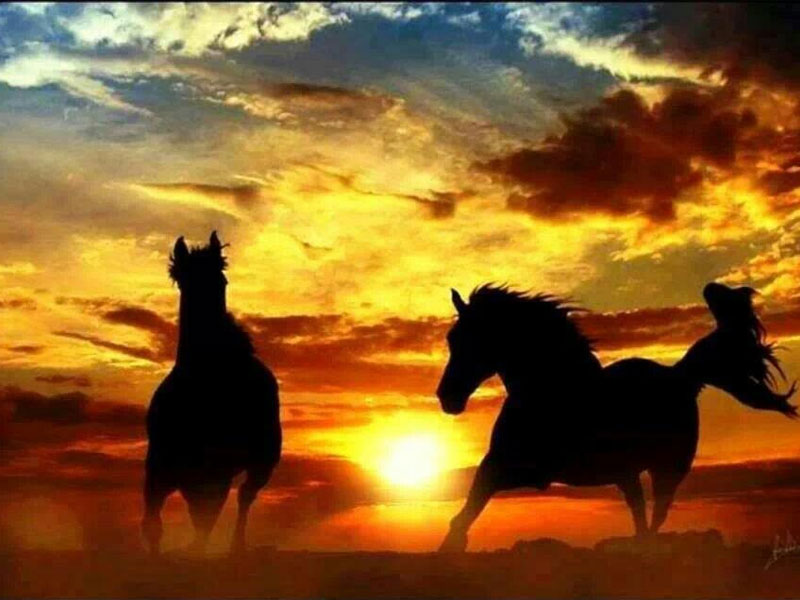
Once upon a time, there was a council of nomadic tribes. They were very proud of their horsemanship skills. The council’s chief, who was very wealthy, wanted to create excitement within the council and decided to hold a contest to find and honor the fastest horse among all the tribes. Being very wealthy, the chief knew he could offer a great prize, but his wealth also made him realize that some things were more important than money.
Therefore, he declared that a race would be held to find the fastest horse which would be declared the greatest horse in the nomadic nation. With this title, the owner of that horse would receive great attention and recognition. He would receive a great trophy at the annual tribal award banquet to be held in Cancun. The owner of the second fastest horse would also win a prize: 10,000 rubies.
The contest consisted of a series of two-horse races. The winner of each race would move on. The loser would go home. There was great excitement. Soon all the tribes were following the races. There were even tent-pools within each tribe as the nomads tried to predict who would win each bracket.
Finally, it came down to two horses: a sleek Arabian gelding named Huan and a stallion named Amal. They were so similar in speed, size, demeanor and even appearance that it was said, “If you’ve seen Huan, you’ve seen Amal.” But that’s a different fable.
On the day of the final race, the two owners prepared for their showdown to prove which horse was the fastest. Huan was striking in his polished bridle and Amal’s saddle was streamlined with state-of-the-art leather design complete with wind spoilers. The two owners sat proud on their horses. The starting gun fired, and they exploded on their 10-mile race.
After a torrid pace for the first four miles, Huan’s owner began to think about the reward for the race. “It is an honor to be recognized as having the fastest horse,” he reflected, “but 10,000 rubies would do much for my tribe. It would help us to update many of our herding techniques and modernize our wool spinning technology. I will gladly give up the title for the financial benefits of finishing second. Besides, the only recognition I need is from my family and tribe, not from others.” At this, Huan’s owner began to pull up on the reigns to slow his horse.
Simultaneously, Amal’s owner began to have similar thoughts. “Sure, I would enjoy personal glory if my horse won,” he pondered, “but what wonderful things 10,000 rubies could bring to our tribe. We could invest in outsourcing our rug making to China and set up health care for retired shepherds. We could enhance our lives greatly by using such a reward for the future of the tribe.” Considering this, the owner of Amal began to slow his horse as well.
At last, each horse and owner were at a dead standstill, waiting the other to move first.
They remained motionless for hours, unable to resolve their dilemma. It was then they noticed a small, quiet figure who had been watching them. They recognized him as the wisest man of the council. He had anticipated this problem and had come out ahead of time to see how the owners would resolve their situation.
The owners dismounted and went over to the wise man and stated their position. The wise man listened with interest. He looked at the owners then spoke two words.
The owners’ eyes widened and their hearts beat with excitement. They turned and ran as fast as they could to the horses, jumped on the steeds and raced as hard as possible toward the finish line.
The two riders looked for every opportunity they could find to win the race. They watched for just the right openings to pass. They looked for the other horse’s weaknesses. The crowd never saw two more determined riders as they crossed the finish line.
Who crossed the finish line first is not important. The most important information is what the wise man said to the owners. Two simple words that stimulated more activity and excitement than any rider had ever displayed.
The two words? “Change horses.”
The Moral? Motivation is a three-legged stool… incorporating the proper reward, appropriate recognition and the permission to use the right vehicle. This is what makes employees take their horse power to a new level of productivity.